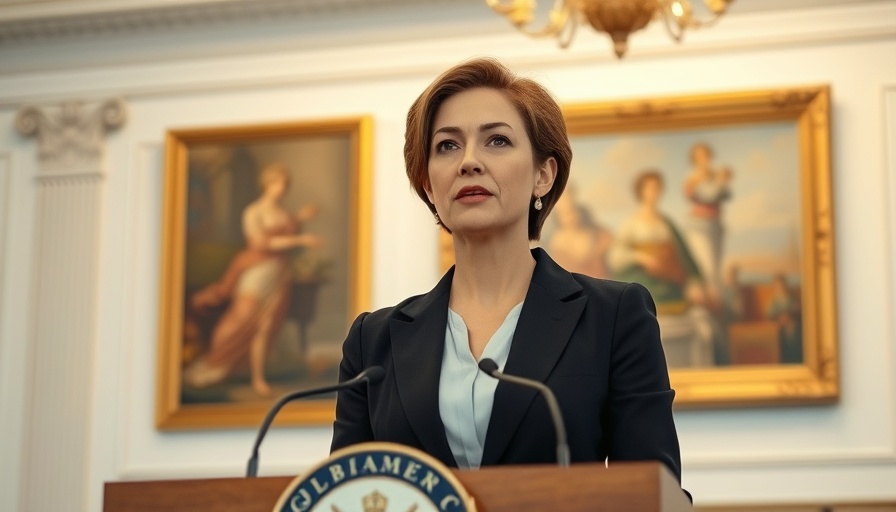
Alina Habba: Controversy and Tenacity in New Jersey’s Federal Prosecutor Office
In the latest chapter of New Jersey's federal prosecution saga, Alina Habba has asserted her position as the Acting United States Attorney, following a tumultuous series of events involving political maneuvering and judicial decisions. Appointed by former President Donald Trump, Habba held an interim role and navigated a stormy political environment marked by conflicting court orders and administrative decisions.
The Political Landscape Shaping Habba's Term
Habba's arrival into the spotlight comes as she battles opposition from New Jersey’s Democratic U.S. senators, Cory Booker and Andy Kim, who have publicly criticized her appointment. The underlying tension highlights a significant division along party lines, accentuated by the recent actions of Trump withdrawing her nomination to the Senate, which alters the federal law implications tied to acting officers.
A Courtroom Battle Over Justice
The situation escalated as a panel of U.S. District Court judges initially declined to confirm Habba's permanent appointment, leading to the unexpected rise of her first assistant, Desiree Grace. Despite this judicial ruling, Trump’s intervention prompted a re-evaluation of Grace’s standing, stirring further controversy. The situation escalates an ongoing conversation about the independence of the judicial branch amid claims of executive overreach and political interference.
Future Implications for the U.S. Attorney's Office
As Habba positions herself firmly in her role, she claims not to be pressured by the prevailing political climate. "I don’t cower to pressure. I don’t answer to politics. This is a fight for justice. And I’m all in," she stated, indicating her intent to drive a tough agenda in the pursuit of law, while also shining a light on the broader implications for the U.S. Attorney’s Office. Her acting term, limited to 210 days, raises questions about the continuity and stability of federal law enforcement in New Jersey.
What’s Next for New Jersey?
As developments unfold around Habba's appointment, the people of New Jersey are left watching closely. How this turmoil will impact ongoing federal cases and the relationship between federal and state law enforcement remains uncertain. The controversy surrounding the U.S. Attorney's position is just one element of a larger narrative about governance and the rule of law in a fractious political landscape.
As we observe these dynamics in New Jersey and beyond, staying engaged with local and national news will be vital for understanding the implications of such appointments. Consider following credible sources and discussions as this story continues to evolve.
 Add Row
Add Row  Add
Add 



Write A Comment